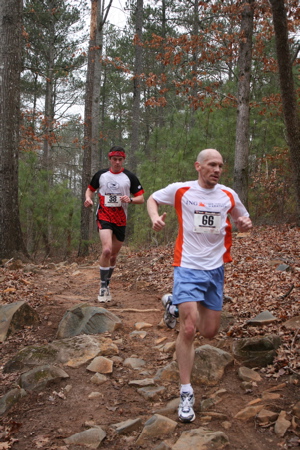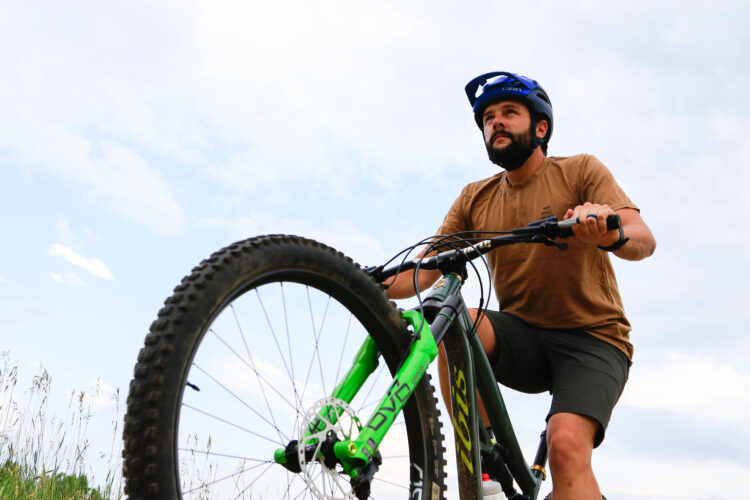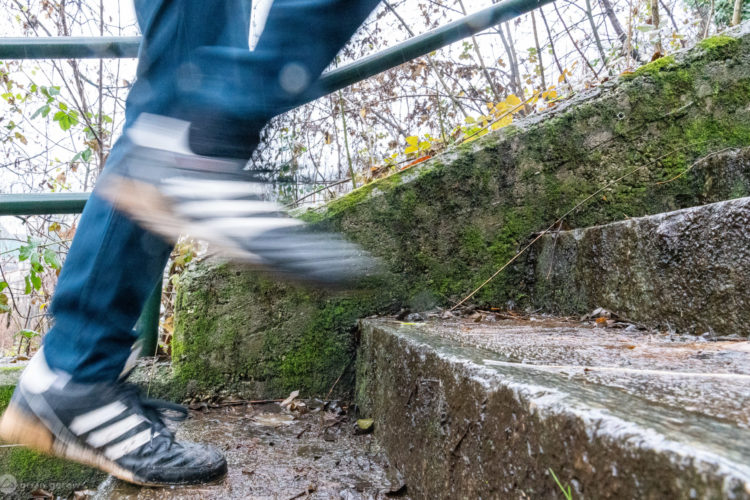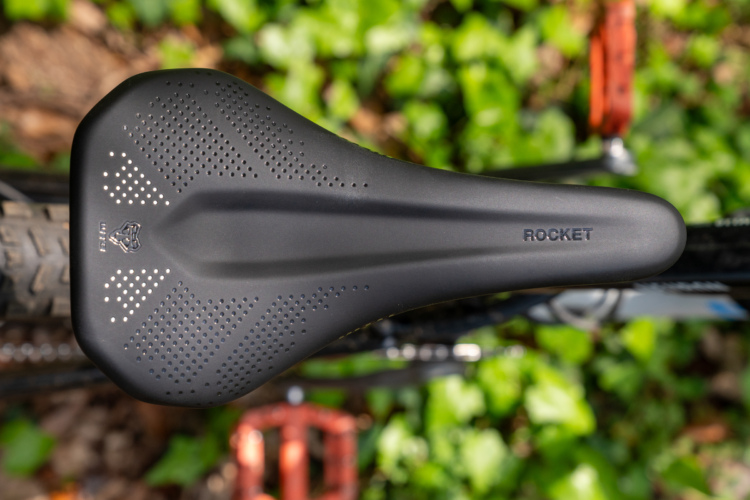As mountain bikers, we like to tout the level of fitness it takes to ride. There’s of course a lot to be proud of–what may be an easy ride for us now would have likely been very hard as a beginning mountain biker.
As time goes on and we ride more and more, those rides that used to make us feel on the verge of vomiting begin to feel like breezy lunch rides, because your body has adapted and grown to meet the rigors of mountain biking.
Unfortunately, it doesn’t necessarily mean that because your body–maybe leaner and fitter than ever because of mountain biking–is in peak shape for a different exercise like running.
If you’ve ever wondered why your mountain bike fitness doesn’t carry into another endurance activity like running, we’ve got some answers for you.
But, cardio is cardio, isn’t it?
A quote I’d heard before, probably in another interview deep in the Singletracks archives goes something like, “your heart doesn’t know the difference between mountain biking and sport X.”
To kick off my interview with Jenny Corso, a biochemical exercise physiologist, mountain biker and athlete, and Singletracks contributor, I asked which parts of that quote are true and which aren’t when it comes to transferrable fitness between running and mountain biking.
“Cardiac output is cardiac output,” said Corso. But that comes with a lot of caveats, or layers as she puts it. If you increase the intensity of your movements whether it’s from sitting in a chair to mountain biking, or walking to running, your heart will need to match the demand.
Over time and given enough running or riding, your heart will adapt so well to the demands of the sport that it may even lower your resting heart rate.
And even though your heart may not know the difference between running and mountain biking, if your mountain bike rides are typically longer in nature and you decide to change your workout and sprint hills for 20 minutes one day, it doesn’t mean that you will be cardiovascularly adapted to that form of running because of your mountain bike fitness.
That said, if you’re approaching cross-country running from a cross-country mountain biking background, you might find some transferrable cardiovascular fitness, but that doesn’t mean you should jump right into a half-marathon if you haven’t been running.
“Cardiovascularly they may help [each other]. Biomechanically they’re very different,” she said.

Biomechanical differences between running and mountain biking
Much of what feels more difficult about running than mountain biking are the mechanics of it. Both activities are a pushing exercise, but on a bicycle, you are using rolling momentum to defy gravity’s pull.
In other words, you can coast or go downhill without having to pedal, thanks to the ingenuous design of geared bicycles, whereas no such ability exists in running and your legs will still need to push the rest of your body.
As humans, Corso says, our bodies are not evolved to ride bicycles, but it is an adaptation that can be made. Rather, bipedal humans are made to carry, walk, and run their weight forward from an evolutionary perspective.
Running tends to burn more calories and require more oxygen uptake, signaling a greater physiological demand, and it requires more core stabilization without a set of handlebars to rely on.
“The average caloric cost is about 100kcal per mile [running] vs 25-50kcal per mile cycling, depending on MPH,” she said.
The caveat and extra “layer” here is that running does not require a comparable amount of upper body strength like mountain biking does. Mountain biking up or downhill, especially on jarring, technical terrain requires a lot of pushing when you’re landing off of a drop and stabilize yourself over rocky terrain, or pulling as you might manual through a dip or get your front wheel up and over a rocky step-up. Still, it’s likely not enough to match the caloric expenditure of running.
Lastly, because of the impacted nature of running, it tends to be better for bone development than cycling.
“Even if you’re a bike park rat and have impact from jump lines and stuff, it’s still not a weight bearing activity,” said Corso.
Several studies indicate bone density and health in those who only bicycle can suffer compared to runners, though some indicate that the bone density of mountain bikers is still better than that of road cyclists.
How to train yourself to run, as a mountain biker
Adaptation is going to be greatest in the sport you do the most. If you run more than you mountain bike, you’ll be more adapted to running, and vice versa. This follows the fitness principle of specificity, meaning that the body will respond to training in a manner specific to the activity. Unfortunately there isn’t a way around this.
“If you want to do both, you have to do both,” said Corso. “And the general rule muscularly is every 48 to 72 hours to work that muscle group [for gains]. So if you can do it every other day, take one day off a week and you have three days of cycling and three days of running.”
When it comes to the viability of one exercise and its fitness product being more transferrable to the other, Corso believes runners will have more of an advantage at mountain biking, than riders will be to running, because of the greater amounts of energy and oxygen running requires.
“If you’re a cyclist that tries to run…yeah, running sucks. If you’re a runner that tries to bike, you may see more translation in that direction.”
Looking at triathletes however, it is obviously possible to excel at both. For adaptation and specificity to work for both mountain biking and running, one simple trick will work: Do both.
“[You’re] not necessarily going to be good at both unless [you] put the same amount of time into both sports, or enough time to make a difference.”






















16 Comments
Feb 22, 2024
Seems out of touch with a fitness article...
Feb 22, 2024
Feb 22, 2024
Feb 23, 2024
Feb 25, 2024
Feb 23, 2024
Mar 4, 2024
Feb 22, 2024
All to say I don't fully agree that a strong runner translates to endurance on a bike.
Feb 23, 2024
Feb 22, 2024
Feb 22, 2024
Feb 21, 2024
Mar 3, 2024
Feb 23, 2024
And I feel like the older I get, the less translation there is. It's not just that biking 50 miles doesn't get me in shape for running at all, it's like biking 50 miles barely gets me in shape for biking 60 miles. I'm super strong for the stuff I do all the time, and absolutely nothing else.
Every once in a while I see a news story about how some teenager out for a jog casually tags along with a group and ends up accidentally running a marathon, or rides 500 miles in two days on a rusty old cruiser to get medicine for their sick father. You never hear about anyone over 30 doing something like that!
Mar 2, 2024
Feb 23, 2024